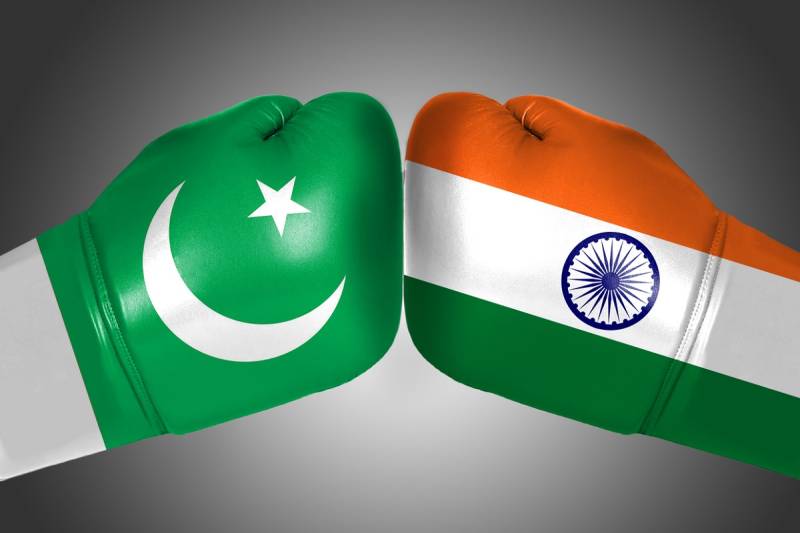
ISLAMABAD: Nuclear deterrence remained intact during the post-Pulwama stand-off as it contained the escalation at the initial level, senior officials said at an event organised by Islamabad Policy Institute (IPI).
The Islamabad-based policy think tank had organised an exclusive media interaction of senior Pakistani officials dealing with strategic affairs the other day. The topic of the event was ‘Pakistan’s Nuclear Journey: 21 Years of Deterrence and Stability’.
The panellists included Director General Arms Control and Disarmament Affairs, Strategic Plans Division Brig Zahir Kazmi and Director General Arms Control and Disarmament, Ministry of Foreign Affairs Muhammad Kamran Akhtar. Defence analyst Syed Muhammad Ali moderated the event.
Brig said the purpose of deterrence is to close space for war and bring states to the negotiating table. “Stability actually means peaceful resolution of territorial disputes in the Subcontinent – no disputes mean no crises and conflicts. Nuclear deterrence should be a factor of stability between Pakistan and India.”
He said deterrence worked during the post-Pulwama military stand-off despite the Indian attempt to escalate to a different level by talking about mobilisation of nuclear missile and nuclear submarines.
Brig Kazmi identified three imperatives for deterrence: enabling geostrategic environment for sustainable mechanism for dispute resolution, strategic restraint and responsibility, and maintenance of balance in nuclear deterrence capabilities through arms control rather than competition.
He further clarified that deterrence is not an end in itself but a psychological state. “It should inspire fear in which the perceived cost of deterrence breakdown is higher than the desired benefits of preferring war as an instrument for dispute resolution.”
Kamran Akhtar said the recent Pulwama incident shattered the myth of responsible Indian strategic behaviour.
“Pakistan is a responsible and restrained nuclear power and the allegations regarding A Q Khan overlook the fact that he was an individual who operated on his own. He was part of a large international supply network involving thirty-one entities, spread over more than twenty-four countries. Several international accounts are based on misperceptions regarding our nuclear programme that are divorced from reality. Pakistan’s safety and security record is immaculate and an example for various countries that follow and learn from it,” he maintained.
The chief of disarmament directorate strongly dismissed the allegations regarding Pakistan possessing the fastest growing nuclear programme in the world.
Citing various credible and respected international research publications including those of Harvard University’s Belfer Center, he said India had a much larger, older and fastest growing nuclear programme than Pakistan but it was often overlooked. He also described the disproportionate focus on Pakistan’s nuclear security as both unfair and unnecessary.
Muhammad Ali, in his opening remarks, said Pakistan’s nuclear programme had significantly contributed towards meeting both its traditional and non-traditional security needs. Nuclear deterrence, he said, had enabled Pakistan timely manage and de-escalate several regional crises with India during the past three decades and also given our national leadership and diplomats more confidence in international diplomacy.
The Islamabad-based policy think tank had organised an exclusive media interaction of senior Pakistani officials dealing with strategic affairs the other day. The topic of the event was ‘Pakistan’s Nuclear Journey: 21 Years of Deterrence and Stability’.
The panellists included Director General Arms Control and Disarmament Affairs, Strategic Plans Division Brig Zahir Kazmi and Director General Arms Control and Disarmament, Ministry of Foreign Affairs Muhammad Kamran Akhtar. Defence analyst Syed Muhammad Ali moderated the event.
Brig said the purpose of deterrence is to close space for war and bring states to the negotiating table. “Stability actually means peaceful resolution of territorial disputes in the Subcontinent – no disputes mean no crises and conflicts. Nuclear deterrence should be a factor of stability between Pakistan and India.”
He said deterrence worked during the post-Pulwama military stand-off despite the Indian attempt to escalate to a different level by talking about mobilisation of nuclear missile and nuclear submarines.
Brig Kazmi identified three imperatives for deterrence: enabling geostrategic environment for sustainable mechanism for dispute resolution, strategic restraint and responsibility, and maintenance of balance in nuclear deterrence capabilities through arms control rather than competition.
He further clarified that deterrence is not an end in itself but a psychological state. “It should inspire fear in which the perceived cost of deterrence breakdown is higher than the desired benefits of preferring war as an instrument for dispute resolution.”
Kamran Akhtar said the recent Pulwama incident shattered the myth of responsible Indian strategic behaviour.
“Pakistan is a responsible and restrained nuclear power and the allegations regarding A Q Khan overlook the fact that he was an individual who operated on his own. He was part of a large international supply network involving thirty-one entities, spread over more than twenty-four countries. Several international accounts are based on misperceptions regarding our nuclear programme that are divorced from reality. Pakistan’s safety and security record is immaculate and an example for various countries that follow and learn from it,” he maintained.
The chief of disarmament directorate strongly dismissed the allegations regarding Pakistan possessing the fastest growing nuclear programme in the world.
Citing various credible and respected international research publications including those of Harvard University’s Belfer Center, he said India had a much larger, older and fastest growing nuclear programme than Pakistan but it was often overlooked. He also described the disproportionate focus on Pakistan’s nuclear security as both unfair and unnecessary.
Muhammad Ali, in his opening remarks, said Pakistan’s nuclear programme had significantly contributed towards meeting both its traditional and non-traditional security needs. Nuclear deterrence, he said, had enabled Pakistan timely manage and de-escalate several regional crises with India during the past three decades and also given our national leadership and diplomats more confidence in international diplomacy.
